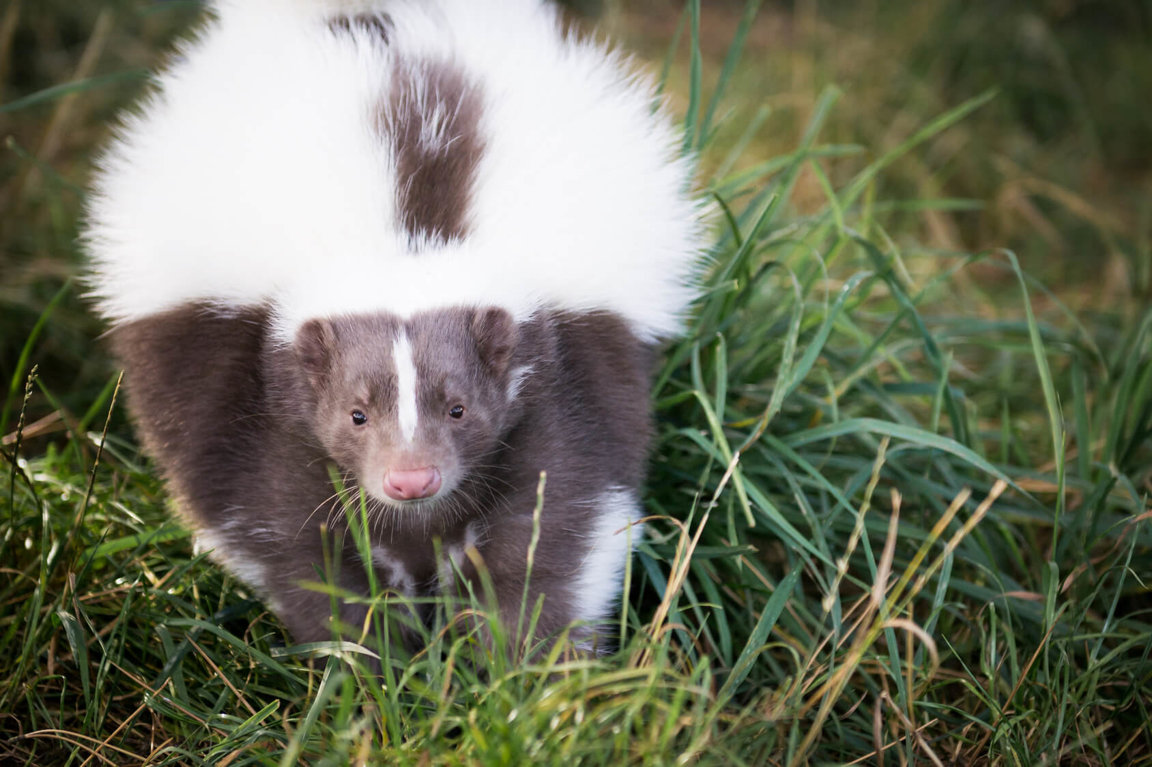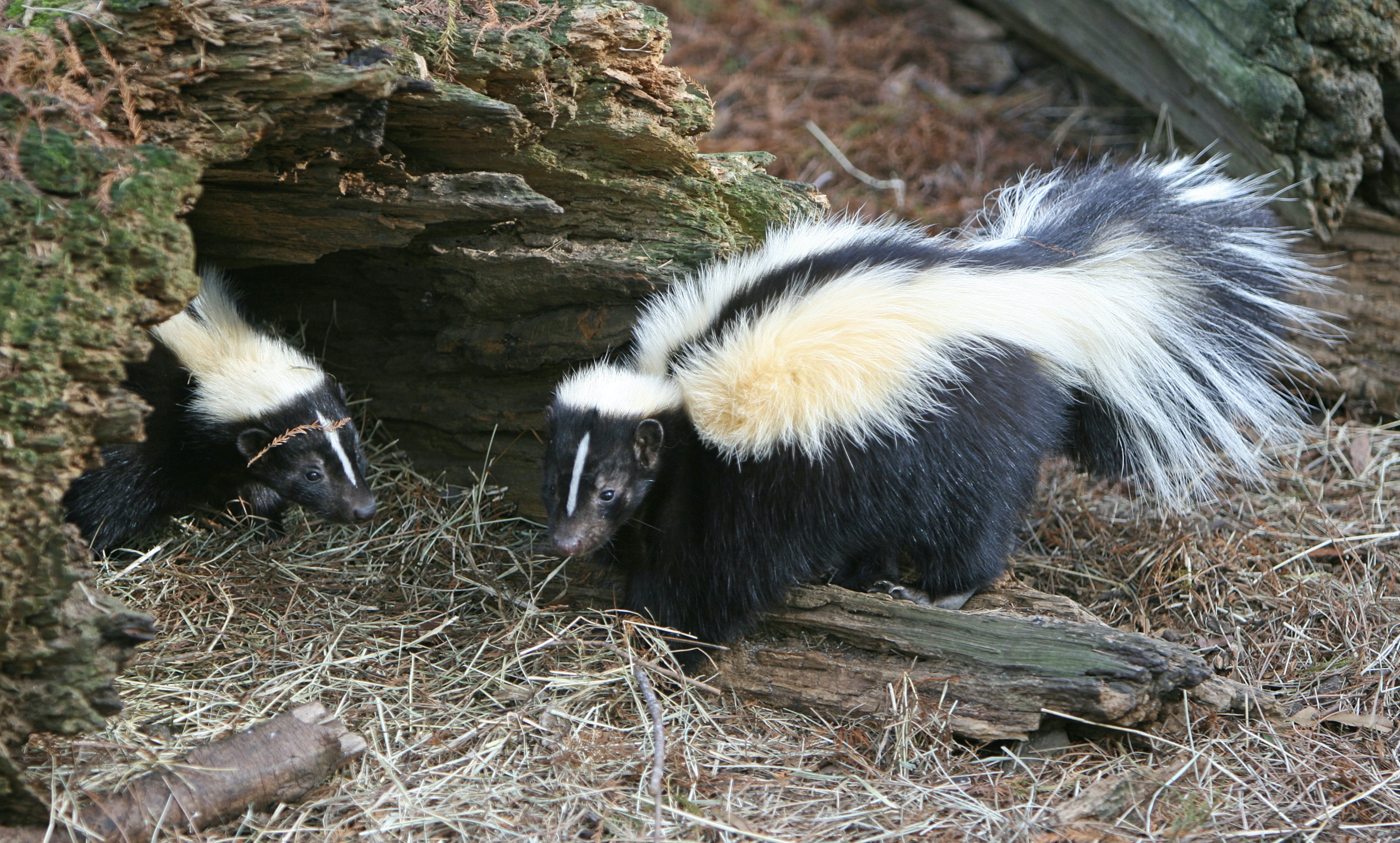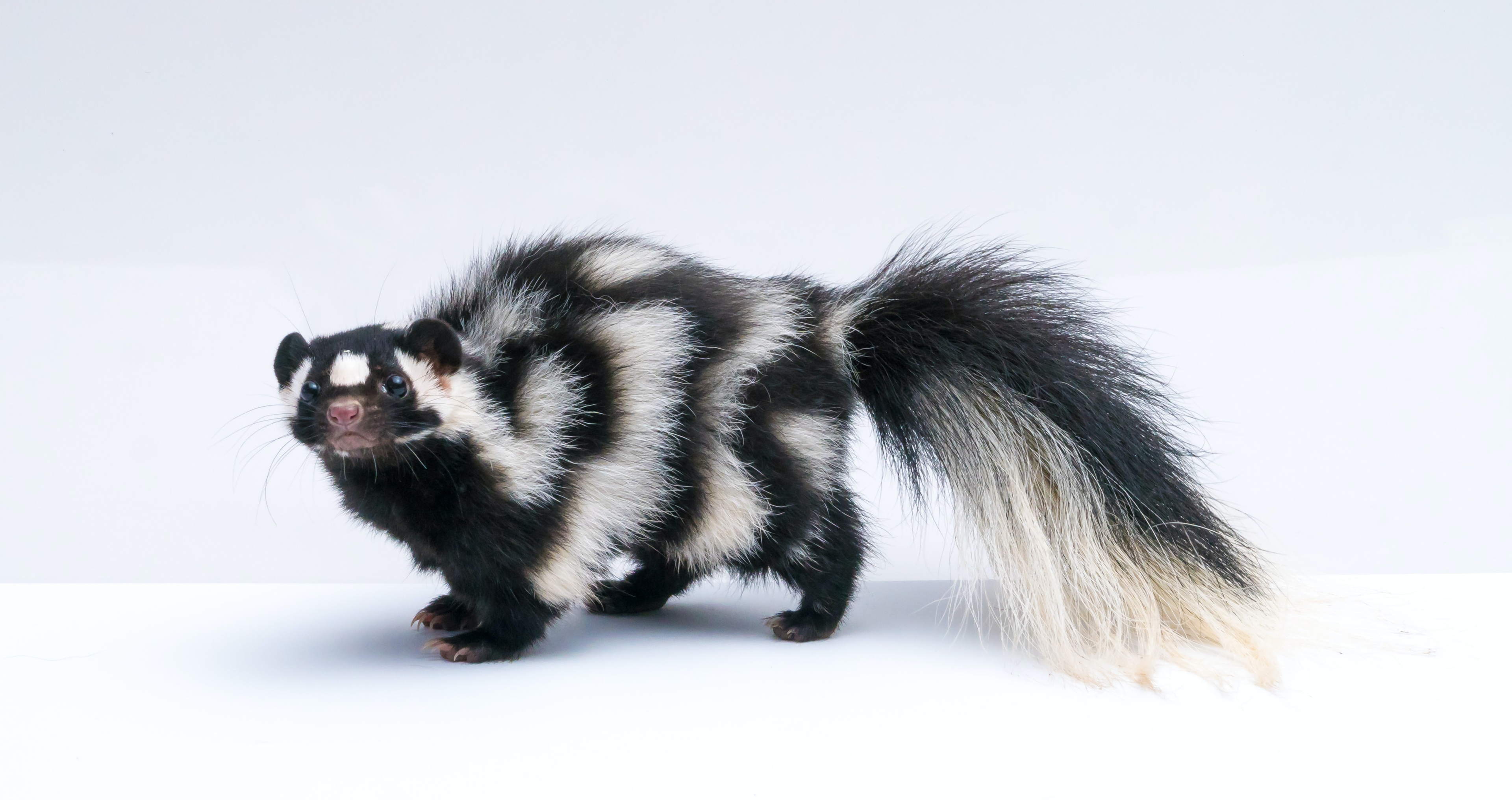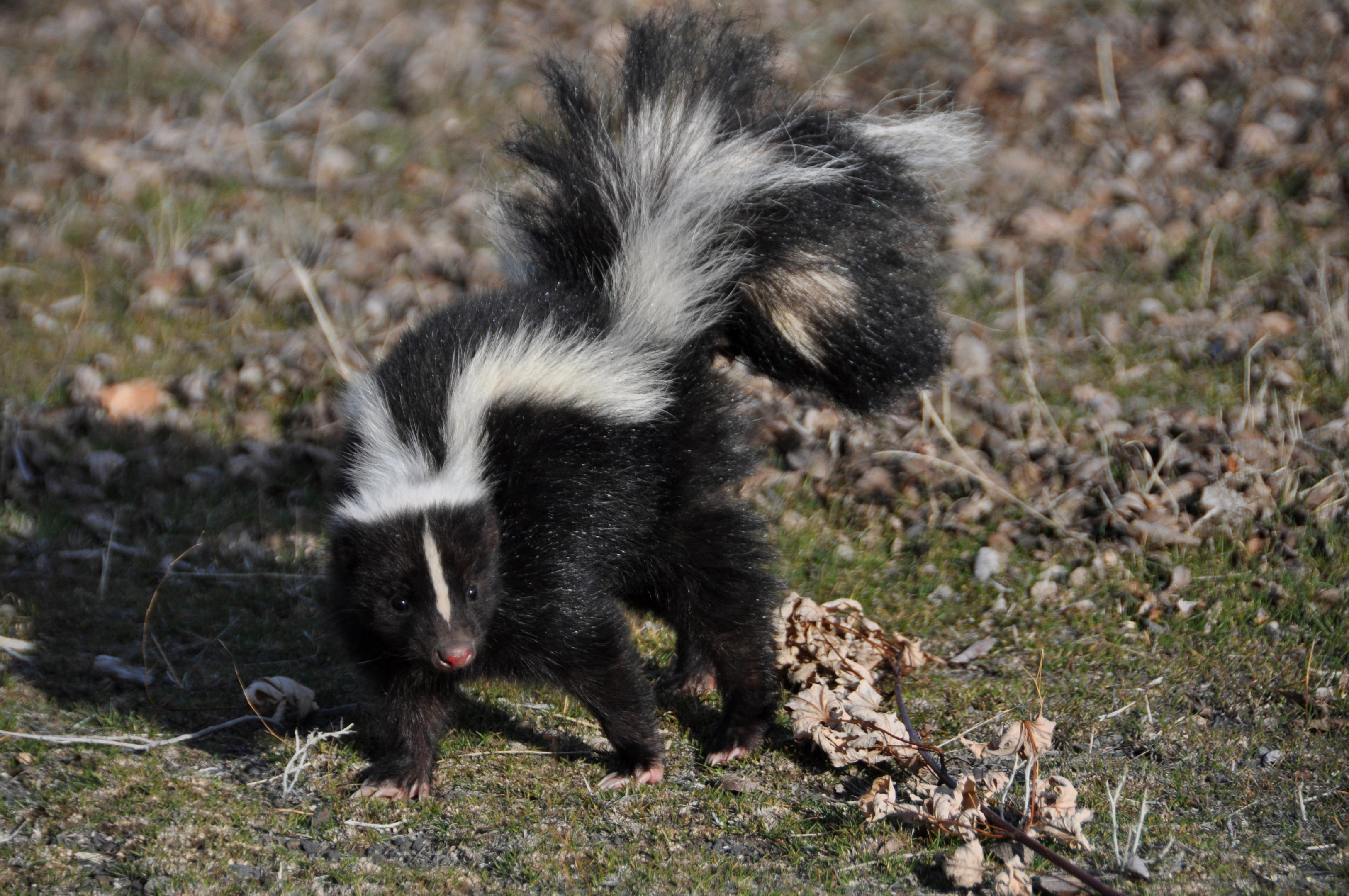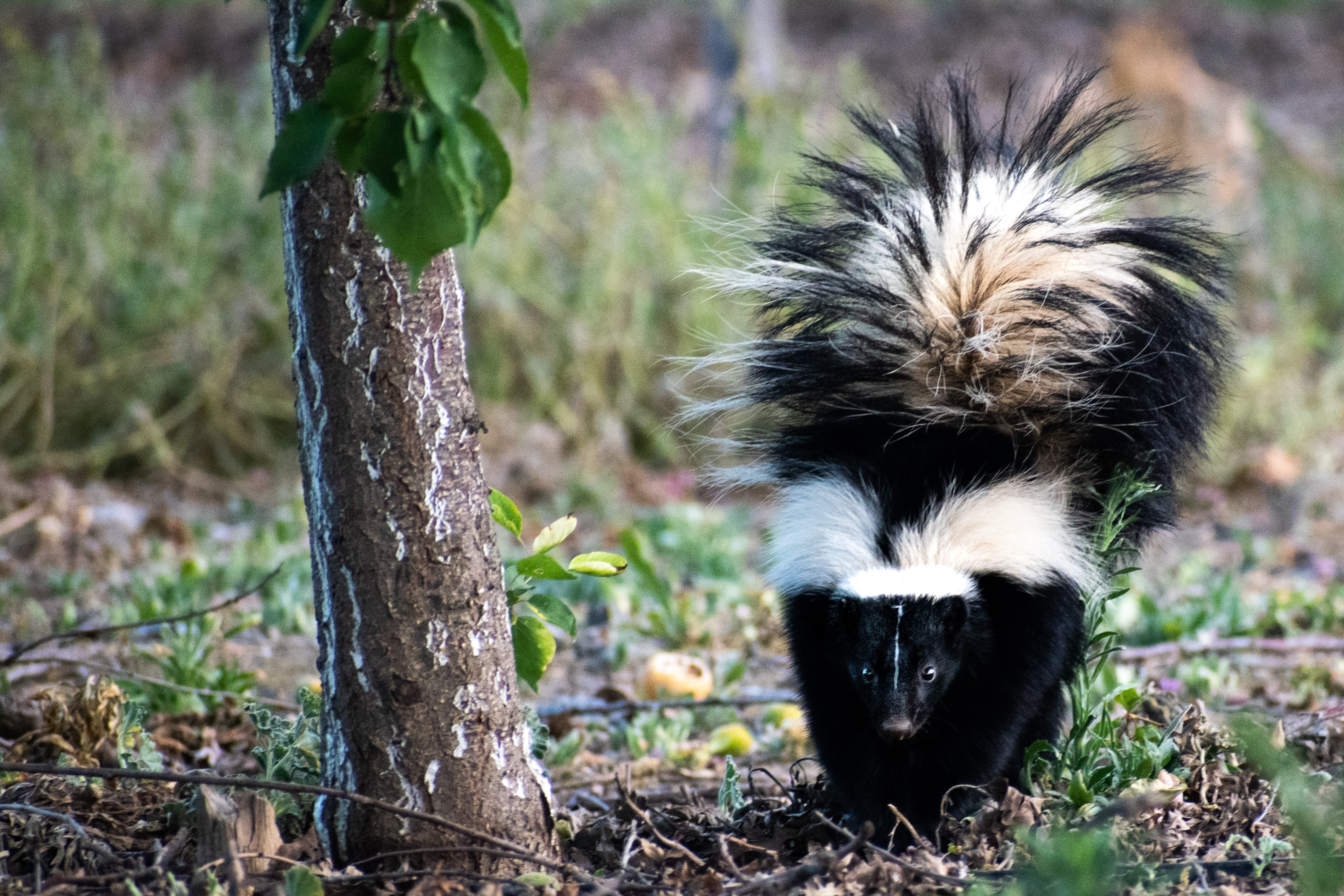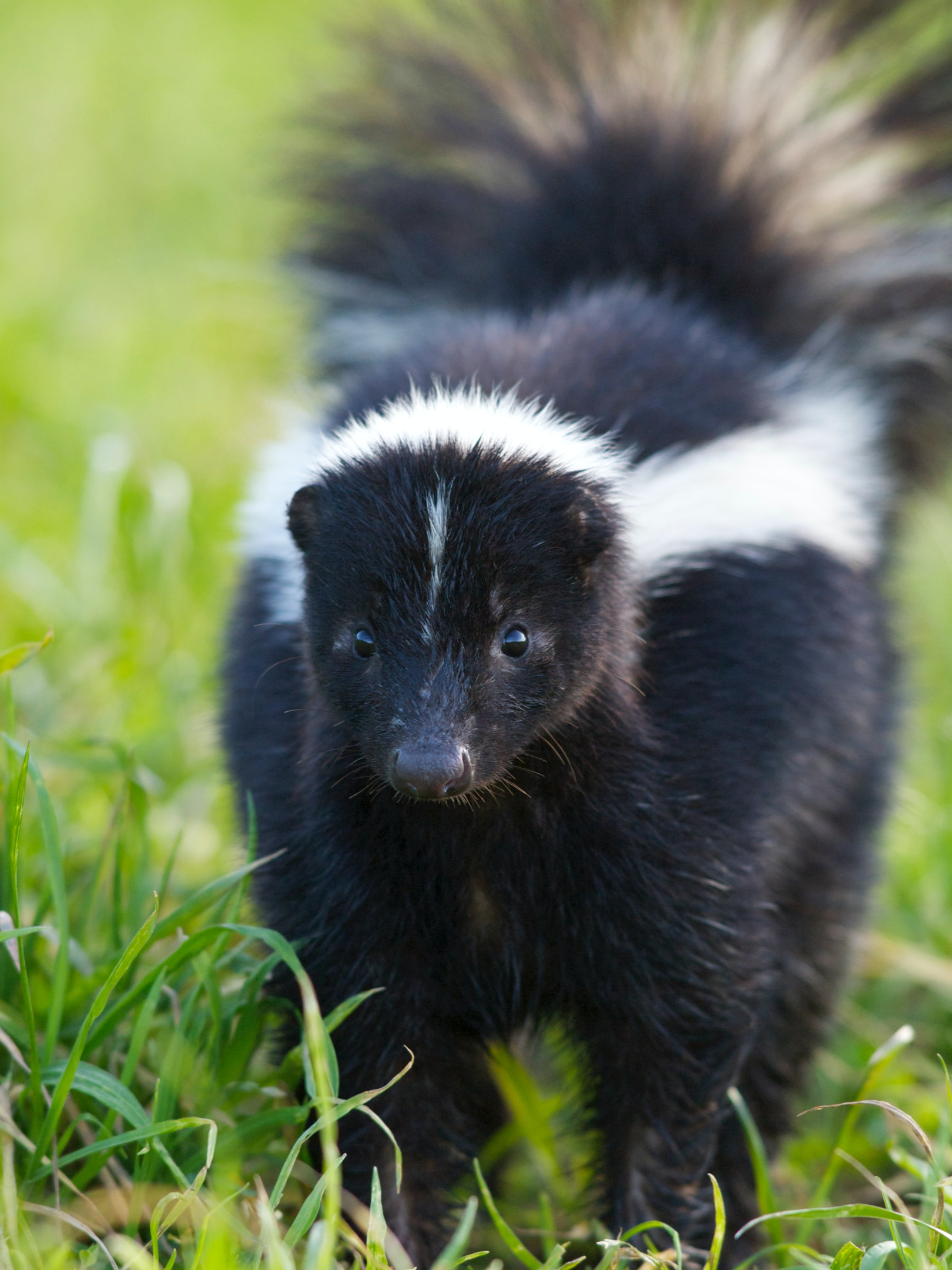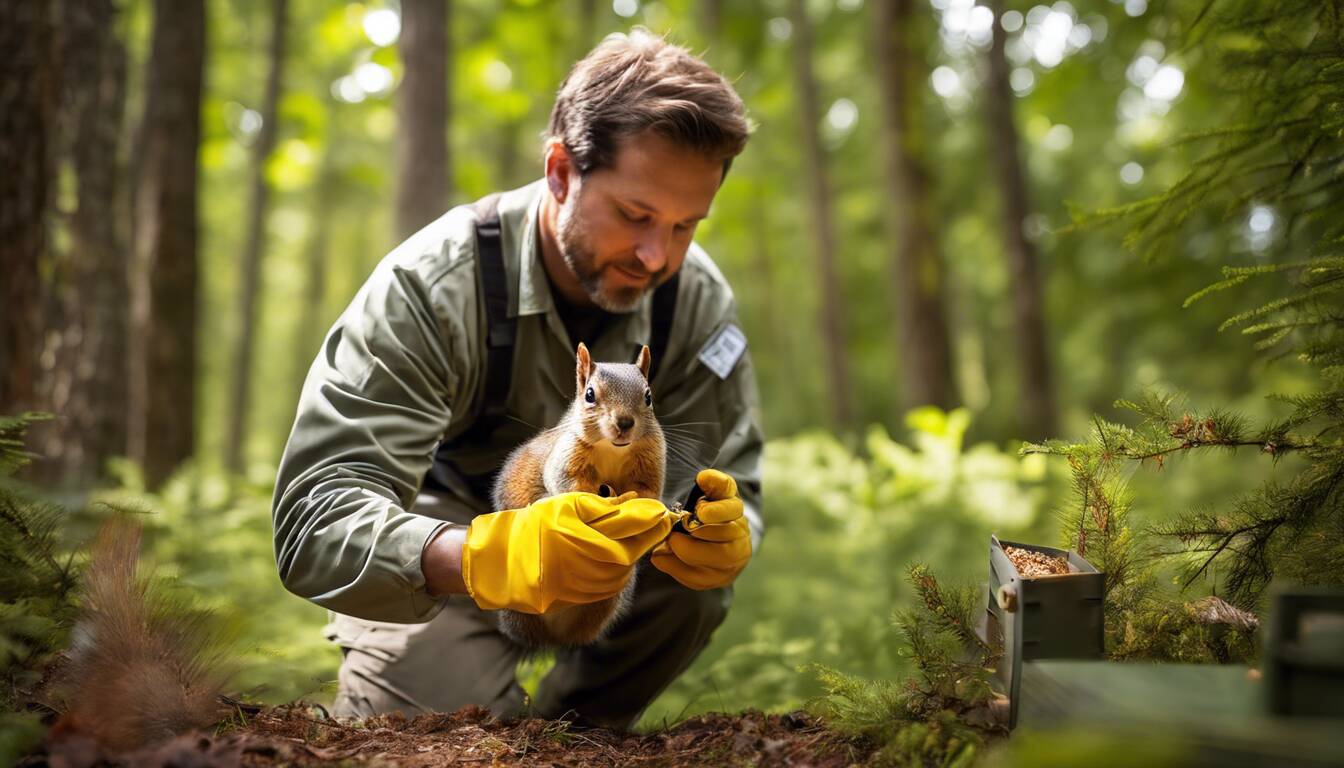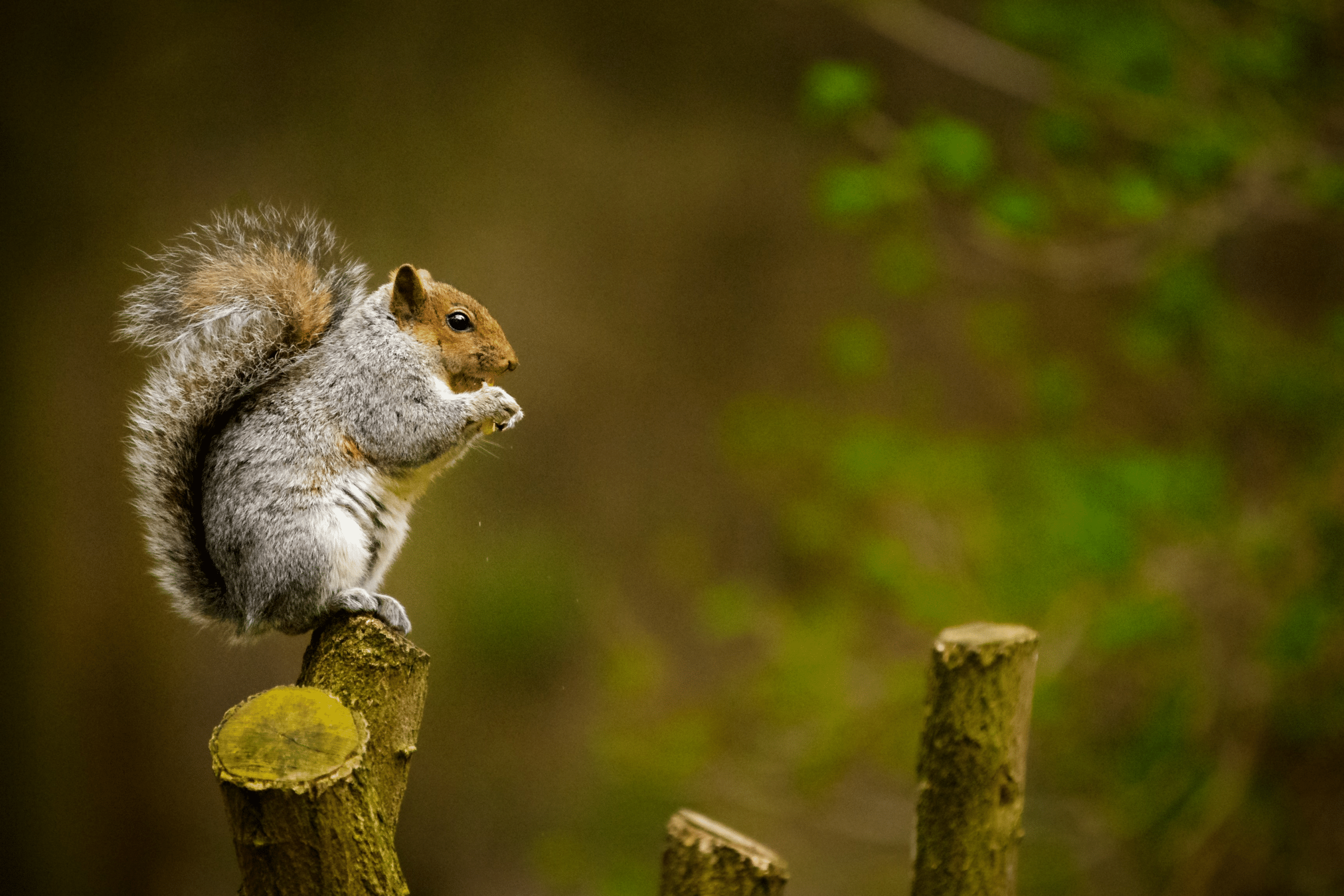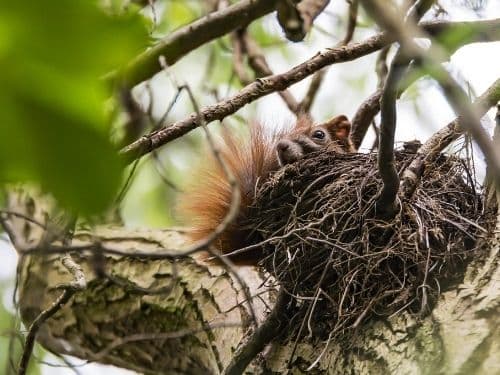
Skunks are one of the most common wild animals that you can encounter in your backyard, and they can wreak absolute havoc on your home, garden, and peace of mind. Not only do they dig up lawns and gardens, but they also release a very unpleasant smell that can linger for days. Fortunately, there are some natural skunk removal solutions that you can try now to help you get rid of these pesky critters for good. From homemade skunk repellents to natural traps and deterrents, these methods are all tried and tested and can provide successful skunk removal without the use of harmful chemicals or poisons. So take a look at our top natural skunk removal solutions and see which one is best for your situation. You’ll be sure to find a solution that will get rid of skunks for good!
What is a Skunk?
A skunk is a small mammal with black and white fur, known for its ability to secrete a strong, foul-smelling odor as a defense mechanism. They are native to the Americas and are found in a variety of habitats, from forests to suburban areas.
Skunks belong to the family Mephitidae and there are several species of skunks, ranging in size from about the size of a chipmunk to that of a house cat. They have a distinctive appearance, with a black and white fur pattern and a bushy tail. Skunks are omnivores and feed on a variety of foods, including insects, small mammals, fruits, and plants.
Their most notable characteristic is their ability to produce a strong, foul-smelling secretion from glands near their anus. When threatened, skunks will raise their tails, stomp their feet, and spray their scent in the direction of the perceived threat as a warning and defense mechanism. The spray is a mixture of chemicals and can cause temporary blindness, irritation, and nausea in humans and other animals.
Signs of Skunk Infestation
Signs of skunk infestation include:
Sightings: If you see a skunk wandering around your property, especially during the daytime, it is a sign of possible infestation.
Odor: A strong, foul-smelling odor is a sure sign of a skunk nearby. The odor is often described as a combination of musky, garlicky, and sulfurous scents.
Burrows: Skunks create burrows in the ground, often near buildings, sheds, or woodpiles. Look for holes in the ground, usually about the size of a softball, with smooth, well-trodden paths leading to and from the entrance.
Damage: Skunks may damage lawns and gardens as they search for food and dig for insects. Look for areas of the lawn that are torn up or have holes in them.
Noise: Skunks are often noisy animals and may make grunting, growling, or hissing sounds. Listen for these noises, especially at night, to determine if skunks are present.
Tracks: Skunks leave distinctive tracks, with five toes and claws on the front feet and four toes on the hind feet. Look for tracks in the soil or mud, especially near burrows or other signs of skunk activity.
If you suspect a skunk infestation, it is important to take precautions to avoid contact with the animal, as they can carry diseases and their spray can cause irritation. Consider contacting a wildlife removal expert for assistance in safely removing skunks from your property.
How to Remove Skunks Naturally
Here are a few natural methods for removing skunks from your property:
- Repellents: Natural skunk repellents include vinegar, ammonia, and Epsom salt. Spray a solution of these substances around your property to deter skunks from entering.
- Fencing: Installing a fence around your property can help keep skunks out. The fence should be at least 3 feet tall and buried at least 6 inches underground to prevent skunks from digging underneath.
- Eliminate food sources: Remove any potential food sources from your property, such as fallen fruit or pet food, to discourage skunks from coming around. Store trash in secure containers to prevent skunks from accessing it.
- Habitat modification: Trim back bushes and trees near your home to reduce hiding places for skunks. Fill in any burrows or dens that skunks may be using.
- Noise deterrents: Skunks are sensitive to noise and may be scared off by loud sounds. Consider using a motion-activated sprinkler or setting up a radio to play loud music near areas where skunks are frequently seen.
It is important to remember that skunks are protected by law in many areas and it is illegal to trap and relocate them without a permit. If you are unable to remove skunks from your property using natural methods, consider contacting a wildlife control professional for assistance.
a. Homemade Skunk Spray Repellents
Here are a few homemade skunk-repellent recipes that you can try:
- Vinegar solution: Mix equal parts white vinegar and water in a spray bottle. Spray the solution around the perimeter of your property to deter skunks.
- Ammonia solution: Fill a spray bottle with undiluted ammonia and spray it around your property, especially near burrows and dens. The strong odor of ammonia is unpleasant to skunks and will help keep them away.
- Garlic and chili pepper spray: Blend garlic and chili peppers in a blender with water and strain the mixture. Fill a spray bottle with the solution and spray it around your property. The strong odor and taste of garlic and chili peppers are unpleasant to skunks and will help keep them away.
- Epsom salt solution: Mix 1 cup of Epsom salt with a gallon of water in a spray bottle. Spray the solution around your property, especially near burrows and dens. The salt in the solution is unpleasant to skunks and will help keep them away.
These homemade skunk repellents may also be effective against other wildlife and pests, but they may also have a strong odor that some people may find unpleasant. It is always a good idea to test a small area before applying a homemade repellent to a large area to make sure it does not cause any damage.
b. Natural Skunk Traps
Here are a few natural skunk trap options:
- Live traps: Live traps are humane and non-lethal traps that allow you to capture skunks without harming them. Bait the trap with food such as canned fish or fruits and place it near burrows or dens. Once the skunk is captured, you can release it in a suitable natural habitat far from your property.
- Exclusion barriers: Exclusion barriers are devices that prevent skunks from entering a specific area, such as a garden or shed. You can create an exclusion barrier by installing a fence around the area, making sure it is at least 3 feet tall and buried at least 6 inches underground to prevent skunks from digging underneath.
- Repellents: As discussed earlier, natural skunk repellents such as vinegar, ammonia, and Epsom salt can be used to deter skunks from entering a specific area. Spray a solution of these substances around the perimeter of the area you want to protect.
c. Natural Skunk Deterrents
Here are a few natural skunk deterrents that you can try:
- Repellents: Natural skunk repellents such as vinegar, ammonia, and Epsom salt can be used to deter skunks from entering your property. Spray a solution of these substances around the perimeter of your property to create a barrier skunks will find unpleasant.
- Noise deterrents: Skunks are sensitive to noise and may be scared off by loud sounds. Consider using a motion-activated sprinkler or setting up a radio to play loud music near areas where skunks are frequently seen.
- Fencing: Installing a fence around your property can help keep skunks out. The fence should be at least 3 feet tall and buried at least 6 inches underground to prevent skunks from digging underneath.
- Eliminate food sources: Remove any potential food sources from your property, such as fallen fruit or pet food, to discourage skunks from coming around. Store trash in secure containers to prevent skunks from accessing it.
- Habitat modification: Trim back bushes and trees near your home to reduce hiding places for skunks. Fill in any burrows or dens that skunks may be using.
Baby Skunk Removal
If you come across a baby skunk, it’s important to first determine if it is truly orphaned. Look for the mother skunk. Skunks are solitary animals and mother skunk often leave their young alone during the day while they forage for food. Before intervening, observe the area from a safe distance for several hours to see if the mother returns.
If the baby skunk is truly orphaned or in immediate danger, you can take the following steps to remove it:
- Wear protective gear: Diseases and parasites attract skunks, so it’s important to wear gloves and a mask to protect yourself. They might also carry the rabies virus.
- Approach with caution: Skunks, even baby ones, have the ability to spray, so approach slowly and cautiously.
- Secure the skunk: Use a towel or blanket to gently pick up the skunk, being careful to support its body and avoid squeezing it. Skunks are poor climbers.
- Contact a wildlife rehabilitation center: A licensed wildlife rehabilitation center is the best place for a baby skunk to receive care and treatment. They will be able to provide the appropriate food, housing, and medical attention the skunk needs.
It is illegal in many areas to keep wildlife, including baby skunks, as pets. If you find a baby skunk, it’s important to contact a wildlife rehabilitation center as soon as possible to ensure it receives the proper care and attention it needs and for you to get rid of skunks.
Skunk Sprays
Skunks are known for their distinctive and unpleasant-smelling spray, which they use as a defense mechanism against predators. When a skunk sprays, it releases a mixture of chemicals called thiols from glands located near its anus. The spray can cause temporary blindness, and its odor can persist for several days or weeks.
If you or your pet come into contact with skunk spray, here are a few steps you can take to neutralize the odor:
- Mix a solution of baking soda, hydrogen peroxide, and dish soap: In a large bowl, mix together 1 quart of 3% hydrogen peroxide, 1/4 cup of baking soda, and 1 teaspoon of dish soap. Do not store this mixture, as it can become unstable and explode.
- Apply the solution to affected areas: Use a sponge or cloth to apply the solution to the affected areas, being careful to avoid getting it in your eyes. Let the solution sit for 5-10 minutes, then rinse thoroughly with water.
- Wash affected clothing and bedding: If your clothing or bedding has come into contact with skunk spray, wash them in hot water and laundry detergent to remove the odor.
How to Get Rid of Skunk Smell
Ah, the dreaded skunk smell! It’s one of those smells that you never forget and it can linger for days or even weeks. If you ever find yourself in a situation where you need to know How to Get Rid of the Skunk Smell, you may be feeling overwhelmed and frustrated. But don’t worry, there are a few simple steps you can take to remove that nasty skunk smell.
The First Step
Getting rid of the skunk smell is to find the source of the smell. If the skunk is still around, it’s important to keep your distance and call animal control. Once the skunk is gone, you can start the process of How to Get Rid of Skunk Smell.
Second Step
Identify what objects or surfaces were affected by the skunk’s foul odor. If it’s clothing or fabric, you’ll need to wash it with a strong detergent like bleach. If the smell is on hard surfaces like furniture or walls, you’ll need to use a combination of vinegar, baking soda, and hydrogen peroxide.
Once you’ve identified the affected items, you can start working on How to Get Rid of your property Skunks Smell. For clothing, you’ll need to wash it in hot water with a strong detergent like bleach. For hard surfaces, you’ll need to mix together one quart of hydrogen peroxide, one-quarter cup of baking soda, and one teaspoon of dish soap. Apply the mixture to the affected area and let it sit for 10-15 minutes. Then, use a scrub brush to scrub away the mixture and the smell.
Skunk Removal Services
If you’re still not sure How to Get Rid of Skunk Smell, you may want to call a professional. They’ll be able to give you advice on the best way to tackle the skunk smell and ensure that it’s gone for good. So don’t panic – there are plenty of ways to get rid of that nasty skunk smell. With the right products and a bit of patience, you’ll be able to get rid of that skunk. Some other remedies might include tomato juice, cleaning garbage, keeping a dog, and cleaning the lawn.

